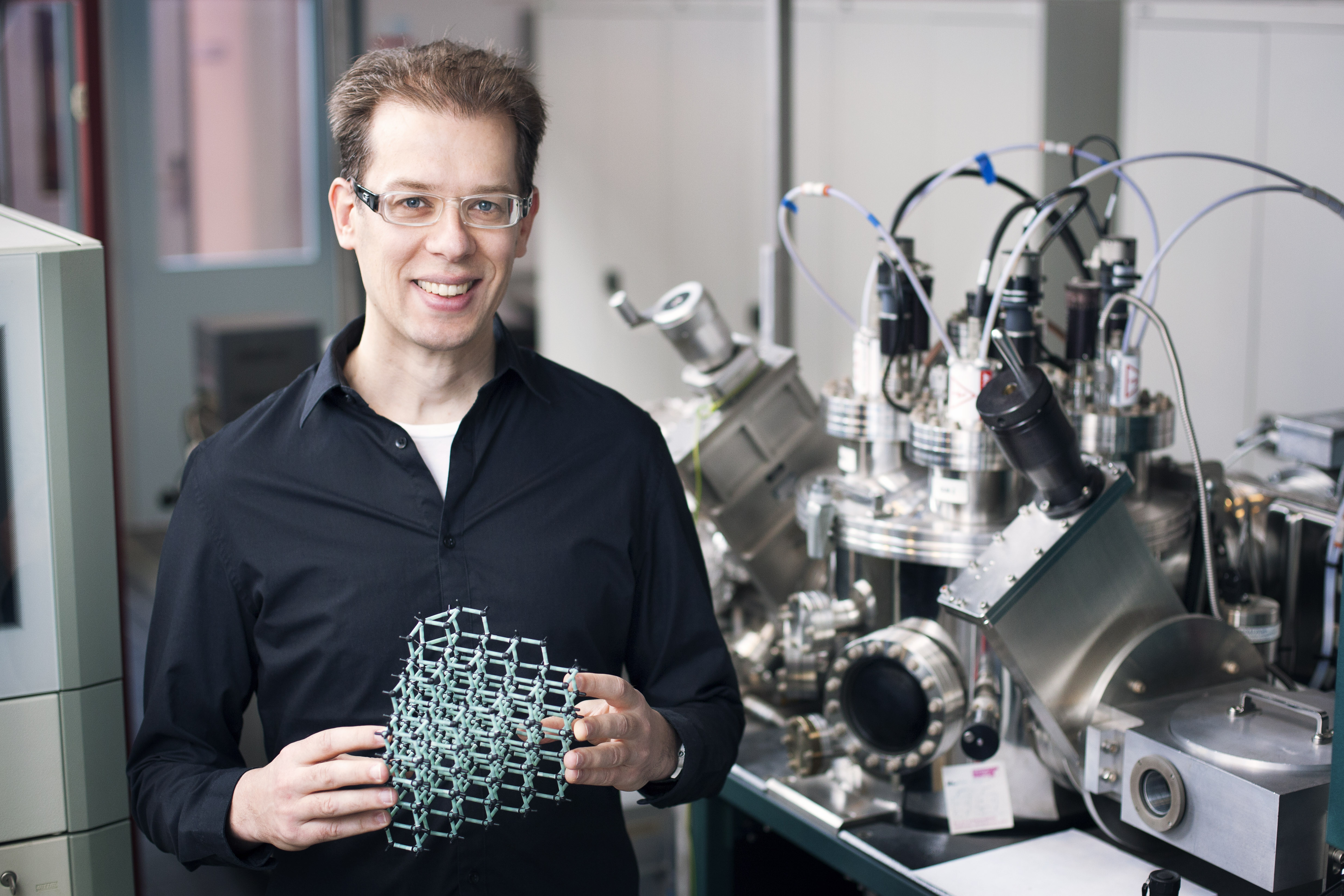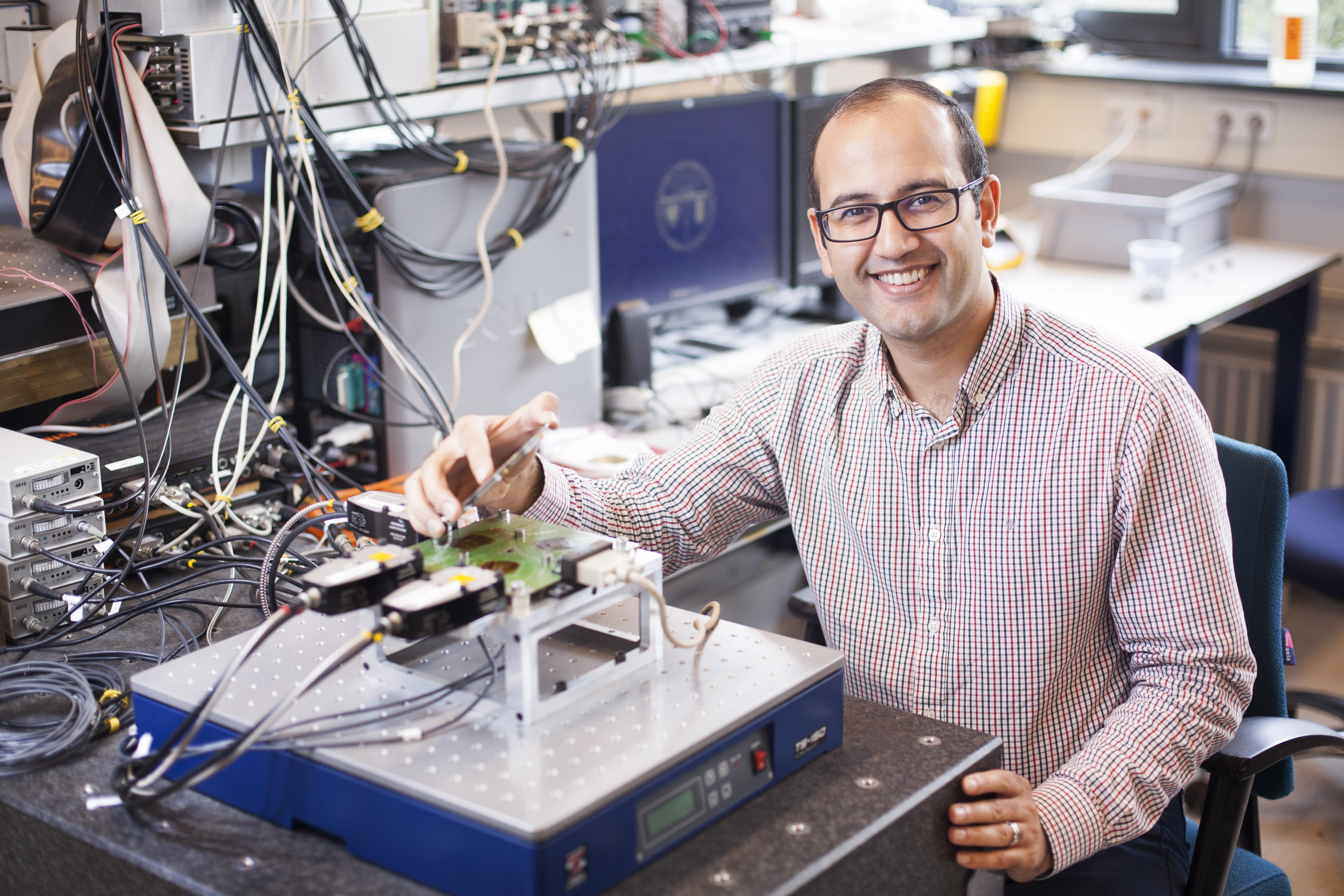Applied and Engineering Sciences grant for Ivan Buijnsters and Hassan HosseinNia’s nano research
Nano engineers Ivan Buijnsters and Hassan HosseinNia (Precision and Microsystems Engineering) have both received an Applied and Engineering Sciences grant for their research projects in the area of nanotechnology. Ivan Buijnsters received the grant for his research ‘DIAMOND MAKES SENSE: Fabrication of Novel Micro/Nano-structured Diamond Microelectrodes for Advanced Electrochemical Sensing’. This research project focuses on simplified fabrication and functionalization approach of diamond micro-electrodes for use in electrochemical sensors. These sensors are powerful tools for detecting biomolecules in fluids, which is playing an increasingly important role in clinical analysis and diagnostics. Hassan HosseinNia received the grant for his project ‘From PID to CompLex Order Controller (CLOC)’, which focuses on the design of a new kind of control mechanism for industrial processes that increases precision, speed, stability, robustness and accuracy.
DIAMOND MAKES SENSE: Fabrication of Novel Micro/Nano-structured Diamond Microelectrodes for Advanced Electrochemical Sensing/ Ivan Buijnsters
This OTP project will focus on a simplified fabrication and functionalization approach of diamond micro-electrodes for use in electrochemical sensors. Such sensors are very powerful tools for the fast detection of biomolecules in fluids, and are becoming of critical importance in, among other application fields, clinical analysis and diagnostics. Conductive diamond is an electrode material with superlative properties. It is the most chemically stable, low-noise, biocompatible, non-toxic carbon material, with the widest detection window and with self-cleaning features. However, diamond is difficult to process, and typically requires expensive and advanced microfabrication tools and techniques for that purpose.
“I really look forward to bring light to one of diamond’s many facets of brilliance. In my group, we work on diamond engineering and we have recently succeeded in establishing first promising results with alternative micro-manufacturing routes of bottom-up synthesis. Through this new project we will be able to expand our activities towards the development of competitive, robust and affordable diamond-based electrochemical sensors for the detection of key physiological substances such as glucose. We will team up with two Dutch companies active in diamond product development and the electrochemical community, and collaborate with few other Dutch research institutions to make this project a success. The projected development of diamond-based electrodes will certainly trigger new partnerships during my Tenure Track programme, for example with researchers and industry active in sensor and water technology, catalysis and chemical conversion processes.”
Also read ‘Diamonds are an engineer’s best friend’ about the research of Ivan Buijnsters
Complex Order Controller (CLOC)/ Hassan HosseinNia
The next big step in the industrial revolution, of which control is a vital part, requires higher speed and increased precision. Classical control is not capable of achieving the increasing demands on performance, robustness and efficiency. Existing advanced controllers are complicated and heavily incompatible with industry standards in terms of design and implementation. CLOC aims to introduce a new control paradigm that overcomes these challenges. Through this project two PhDs and a Postdoc will collaborate together to develop industry compatible nonlinear controllers capable of improving speed, precision, and accuracy while at the same time ensuring robustness and stability.
“For my tenure track CLOC will strengthen my integration and collaboration with another technical university and high reputation industries in the Netherlands. ClOC is collaborative project including two technical universities and three high-tech industries in the Netherlands namely Delft university of technology, Eindhoven university of technology, ASML, DEMCON and Hittech Multin.”
Also read ‘Mechatronics get smart’ about the research of Hassan HosseinNia.
This month, the board of NWO Domain Applied and Engineering Sciences has granted six projects within the Open Technology Programme. The projects of Buijnsters and HosseinNia are two of them.
Nano Engineering Research Initiative (NERI)
The research of Buijnsters and HosseinNia fit into the NERI-programma. The PME Department, driven by the theme ‘nano from lab to app’, established the Nano Engineering Research Initiative. In this initiative, researchers are working together with companies and knowledge institutes to develop new machines, materials and functions in which the short scale of length makes the difference. Read more about <link en organisation departments precision-and-microsystems-engineering-pme neri>NERI.



